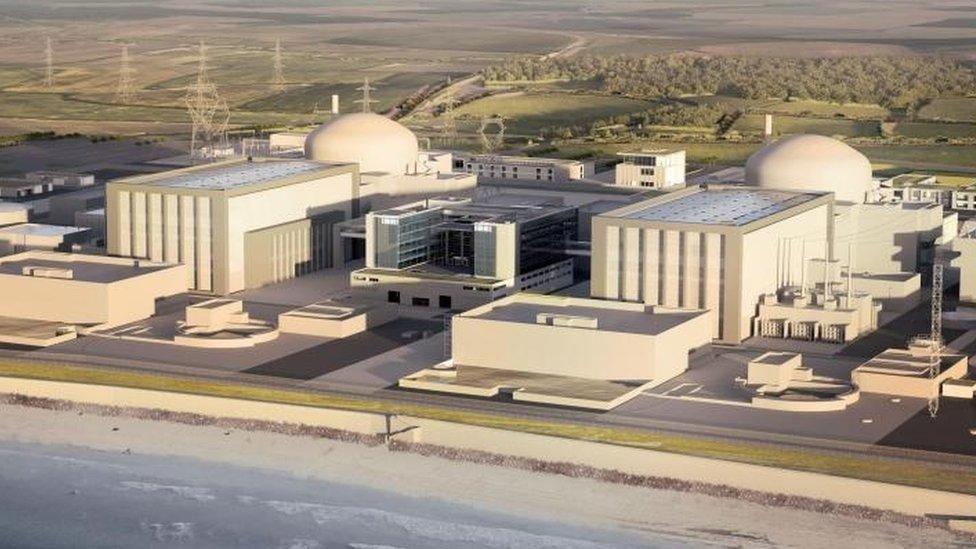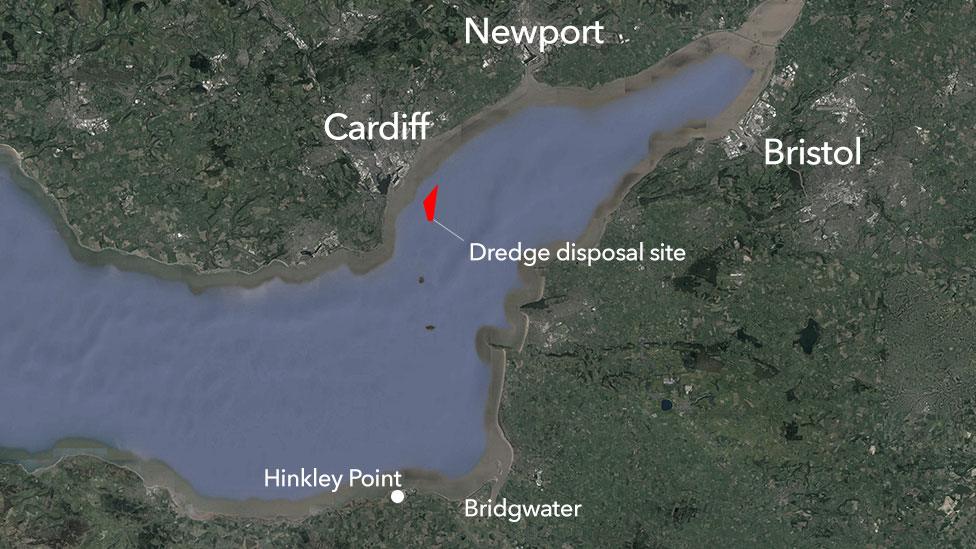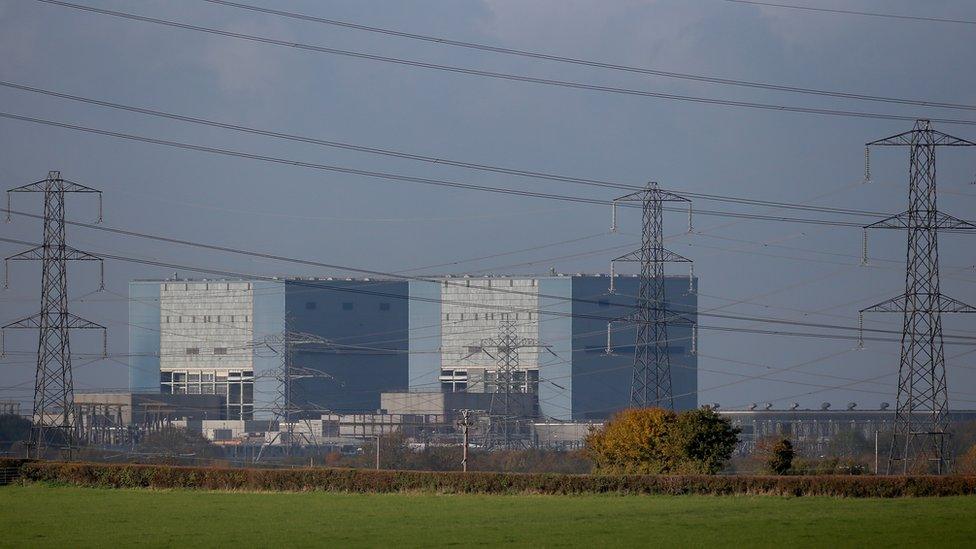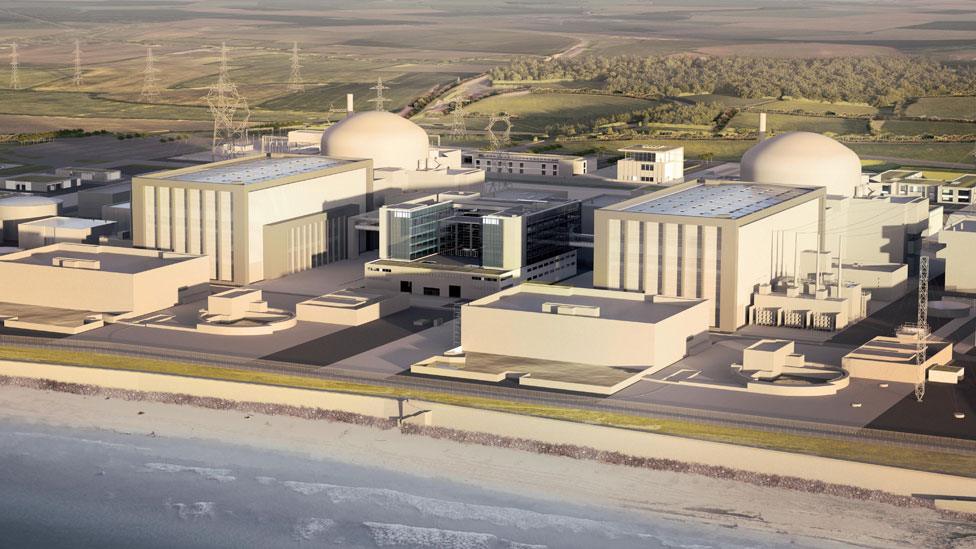Hundreds protest against nuclear power station mud dump
- Published

Several hundred people were at the protest on Monday afternoon at the Senedd
Hundreds of campaigners have gathered outside the Senedd over plans to move mud dredged from alongside a new nuclear power plant to near Cardiff.
Developers want to dump 300,000 tonnes of mud off Cardiff Bay from Somerset's Hinkley Point C nuclear power site.
Protesters want more tests before the move can happen and the licence granted by Natural Resources Wales revoked.
EDF, the company behind the project, said mud had been tested "independently to highly conservative standards".
Several hundred people were at the protest on Monday afternoon organised by independent AM Neil McEvoy.
"Many more people are aware now and horrified, and we want the Welsh Government to intervene," said the Cardiff councillor.
A Welsh Government spokesperson said NRW's decision was based on "expert advice" and added tests concluded "the material is within safe limits and poses no radiological risk" to people or the environment.
Plaid Cymru MEP Jill Evans was at the protest and believes in the precautionary principle.
"If there is any doubt, you take note of that doubt and you don't go ahead unless you are absolutely confident there is no danger," she said. "And I don't believe that's the case here".
EDF, which is behind the £19.6bn plans to build Hinkley Point C, and Natural Resources Wales both insist tests have shown the sediment poses no risk.

A licence has been granted for 300,000 tonnes of mud from the new Hinkley Point C to be dumped off Cardiff Bay
However, campaigners claim it could be contaminated by discharges from the old Hinkley Point A and B and argue the mud has not been adequately tested.
EDF has said those claims are "wrong, alarmist and go against all internationally-accepted scientific evidence".
Sampling of the mud in 2009 and 2013 found levels of artificial radioactivity were so low it would equate to being "not radioactive" in law.
John Wheadon, from NRW, said: "We know this is a matter of great concern for many people, but want to reassure them that every element of the application was considered thoroughly.
"As a condition of the licence, the licence holder was required to carry out additional sampling and monitoring of the disposal site. They've done this, and we've now given the company our final approval to dispose of the sediment into Cardiff Grounds.
"We're confident the proposed activity will not harm people or the environment and the material is suitable for disposal."
AMs discussed the issue in May after a petition to the assembly against the plans attracted more than 7,000 signatures.

Labour AM Mike Hedges said the mud samples and data should be made available to "external" experts while David Melding, a Conservative, said he was "satisfied that [the samples] do meet the standards as set by international law".
A Welsh Government spokesman said: "The recent Petition Committee's report showed Natural Resources Wales made their determination based on expert advice.
"It also confirmed all tests and assessments concluded the material is within safe limits, poses no radiological risk to human health or the environment and is safe and suitable to be disposed of at sea."
- Published9 January 2018

- Published21 October 2015

- Published5 December 2017
